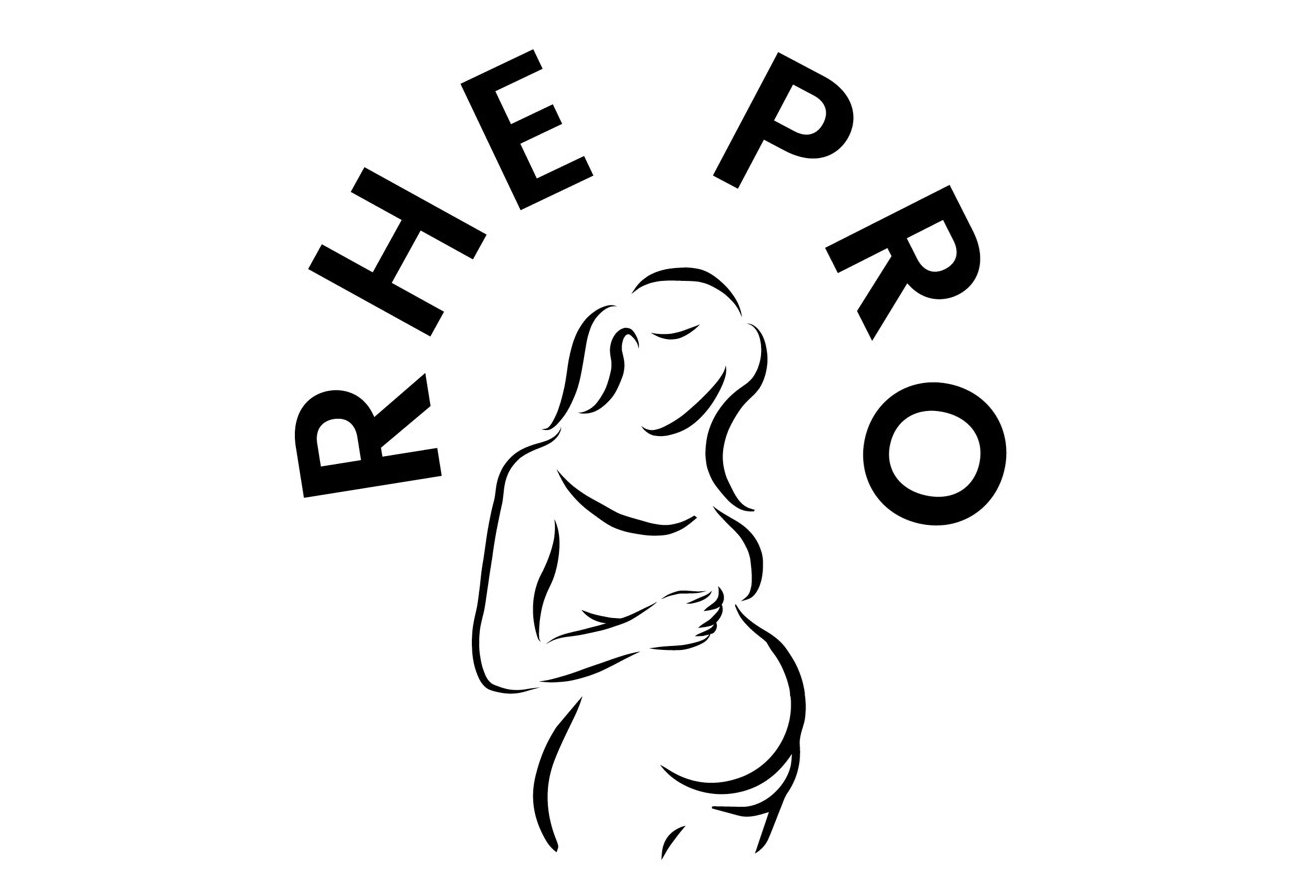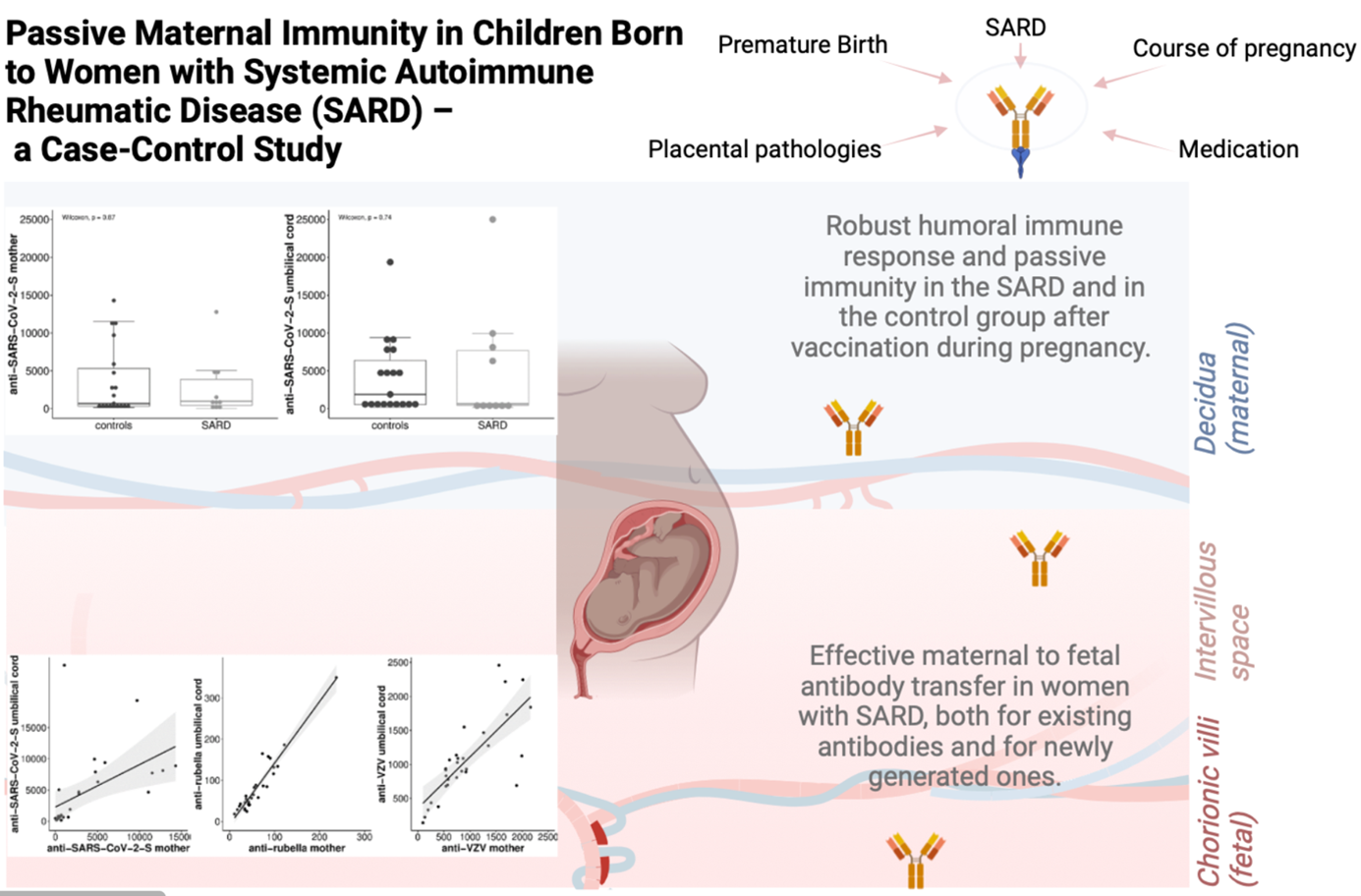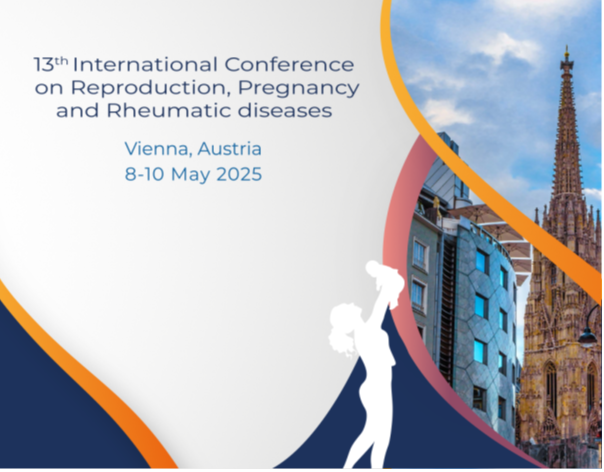
Autoimmune diseases have an unbalanced gender distribution: around 80% of those affected are women. Diseases such as systemic lupus erythematosus (SLE) and rheumatoid arthritis (RA) not only affect significantly more frequently women, but also women of childbearing age rather than other age groups.
This observation suggests that hormonal factors play an essential role in the regulation of the immune system and thus in the pathophysiology of autoimmune diseases.
Pregnancy, in particular, is an immunological state of emergency in which complex adaptation mechanisms between the maternal immune system and fetal tolerance are required. Many of these processes are still not fully understood and are the subject of current research.
The RHEPRO research group is dedicated to the systematic investigation of the interaction between the immune system, hormonal regulation, and inflammatory rheumatic diseases, with a particular focus on fertility, pregnancy, and breastfeeding. We combine translational and interdisciplinary research to gain a better understanding of the immunological mechanisms that influence both the course of rheumatic diseases and reproductive processes – and ultimately derive evidence-based strategies for diagnosis, therapy, and care.
The working group addresses both clinical-translational and basic research questions on:
- The role of hormones in the immune system and their significance for the development and modulation of autoimmunity.
- Immunological changes during pregnancy and the postpartum period.
- Development of the child's immune system in cases of maternal autoimmune disease.
- Disease activity during pregnancy and breastfeeding.
- The influence of modern immunomodulatory therapies on fertility, pregnancy, and childhood immunity.
- Pregnancy complications in rheumatic diseases.
A central project of the working group is the national RhePro registry (www.Rhepro.at), which collects clinical data during the phase of trying to conceive, during pregnancy, and during the postpartum period. The registry is linked to a biobank that collects blood samples from mothers during pregnancy, umbilical cord blood, and placental tissue.
Close interdisciplinary collaborations between rheumatology, gynecology, neonatology, and pathology form the basis for our research.
Current members
As of July 2025.
Publication highlights

Passive maternal immunity in children born to women with systemic autoimmune rheumatic disease – A case-control study Journal of Autoimmunity, June 2025
This study investigates maternal antibody transfer (“nest protection”) in newborns of patients with systemic autoimmune diseases undergoing immunosuppressive therapy.
Pregnancy outcomes in patients with systemic lupus erythematosus compared to a high-risk tertiary cohort and to standard population from the Austrian birth registry Acta Obstet Gynecol Scand, May 2024
This study compares the course of pregnancy in patients with systemic lupus erythematosus with that of a high-risk cohort and the standard population based on Austrian birth registry data.
Depression, Anxiety, and Stress Symptoms in Women with Rheumatic Disease of Reproductive Age: Lessons from the COVID-19 Pandemic Journal of Clinical Medicine, July 2025
This study examines psychological stress—particularly depression, anxiety, and stress—in women of reproductive age with rheumatic diseases.
Guidelines & Recommendations
Periconceptional Counselling in Women with Autoimmune Inflammatory Rheumatic Diseases Journal of Clinical Medicine, April 2024.
This practice-oriented recommendation formulates structured content for periconceptional counseling of patients with inflammatory rheumatic autoimmune diseases.
Immunosuppressives and Biologics During Pregnancy and Lactation: A Consensus Report Issued by the Austrian Societies of Gastroenterology and Hepatology and Rheumatology and Rehabilitation, January 2019.
This interdisciplinary Austrian consensus recommendation provides evidence-based guidance on the use of immunomodulators and biologics during pregnancy and breastfeeding. Developed in collaboration between the professional societies for rheumatology and gastroenterology.
Collaborations
We regularly collaborate with various institutions within the Medical University of Vienna, including the Center for Medical Data Science and Outcome Research, the Clinical Department of Cardiac Surgery, the Clinical Institute of Pathology, and the Clinical Institute of Pharmacology, as well as with international partners such as the National Laboratory for Human Reproduction at the University of Pécs.
These collaborations enable comprehensive and interdisciplinary work on our clinical translational research questions in the fields of rheumatology, immunology, and reproductive medicine.
Center for Medical Data Science and Outcome Research
The center provides particular support in the design, maintenance, and analysis of the national RHEPRO registry, as well as in the methodological evaluation of complex clinical data on pregnancy outcomes and long-term outcomes in patients with autoimmune diseases.
Clinical Department of Cardiac Surgery & Research Laboratory for Cardiac Surgery
Collaborative project: “The cytokine profile and effect on vascular cells of umbilical cords in patients with inflammatory rheumatic diseases.”
Investigation of immune-mediated changes in vascular cells in the fetomaternal context.
National Laboratory for Human Reproduction (Universität Pécs, Ungarn)
Collaborative project: “Characterization of the inflammatory cytokine profile, natural antibodies, and extracellular vesicles in feto-maternal communication in pregnancies with and without assisted reproductive technologies and with rheumatic diseases.”
Analysis of immunological signaling pathways and communication processes in the context of natural and assisted conception.
Clinical Institute of Pathology
Collaborative project: “Characterization of the placenta in rheumatic diseases.”
Histological and molecular investigation of placental changes in the context of maternal autoimmunity.
Clinical Institute of Pharmacology
Collaborative project: “Characterization of transplacental transport of immunomodulatory therapies during pregnancy and data generation on breastfeeding”
Experimental models for researching drug transfer across the placenta and into breast milk.
Fundings
Our team is supported by a research grant from UCB, Gilead Sciences GmbH, and Pfizer, as well as by the Scientific Fund of the Mayor of the City of Vienna (project no. 22074 to K. R.).
Education – RheumaPreg 2025

As chair, we had the privilege of organizing the 13th International RheumaPreg Congress in Vienna in May 2025 - the first time the event was held in Austria, at the Austria Trend Hotel Savoyen (University Center Vienna). Officially endorsed by EULAR, the event takes place every two to three years in different countries.
RheumaPreg provided an interdisciplinary platform for presenting the latest research and continuing education. With around 46 countries represented and more than 400 participants, RheumaPreg 2025 was a global networking hub that promoted exchange at the highest level. The key content and scientific highlights were subsequently presented in the EULAR Study Group on Reproductive Health and Family Planning (ReHFaP) and are available online:
